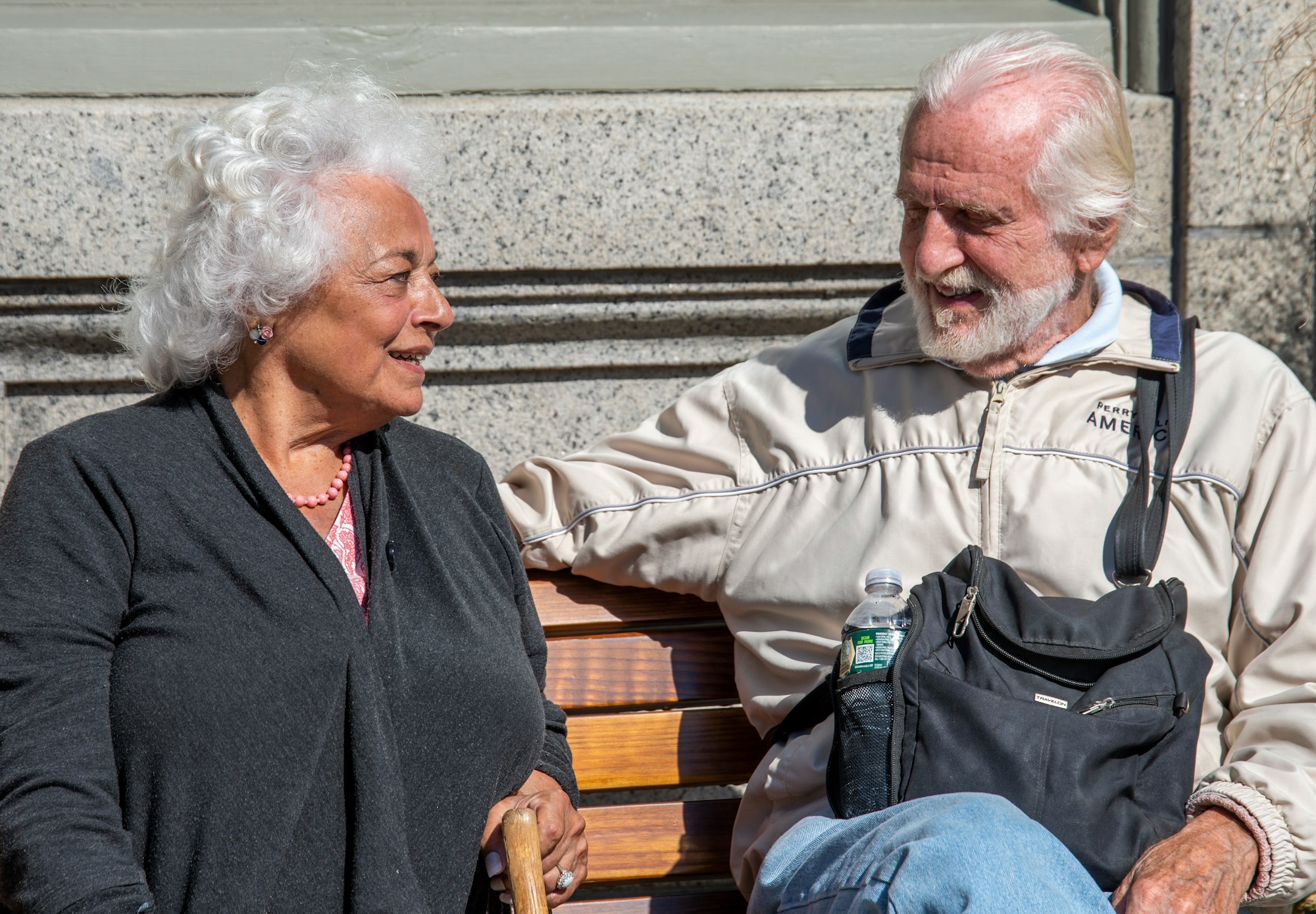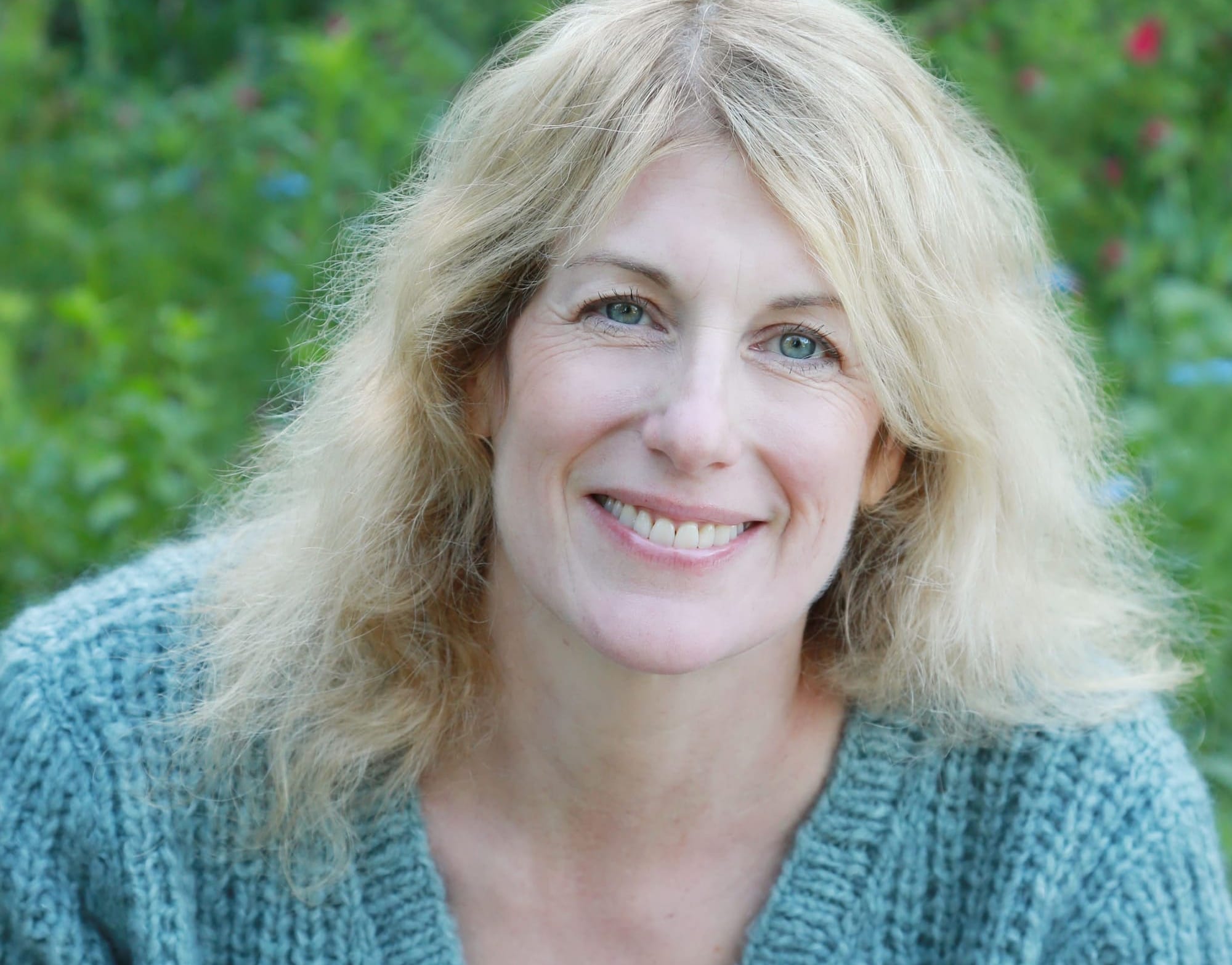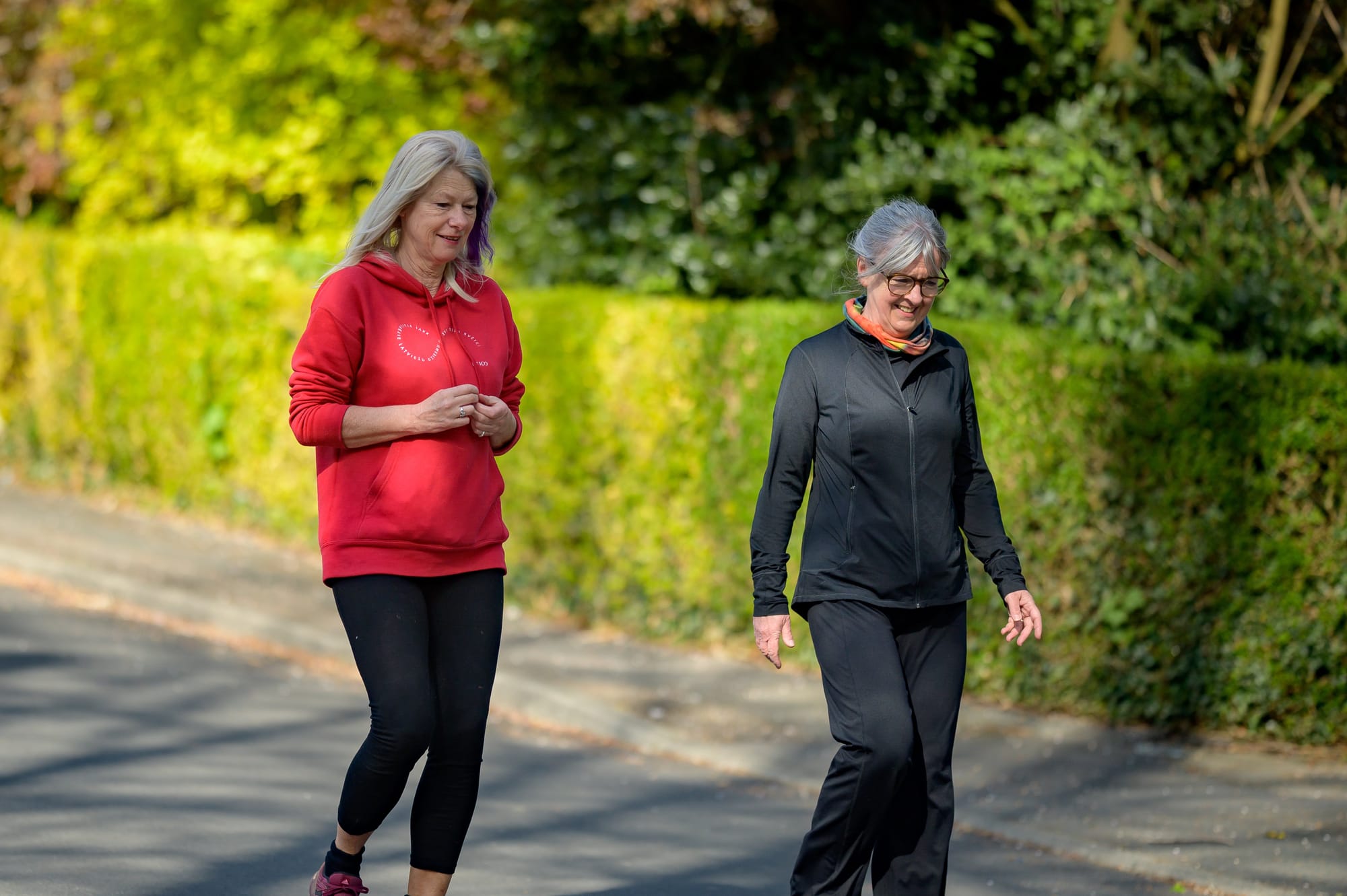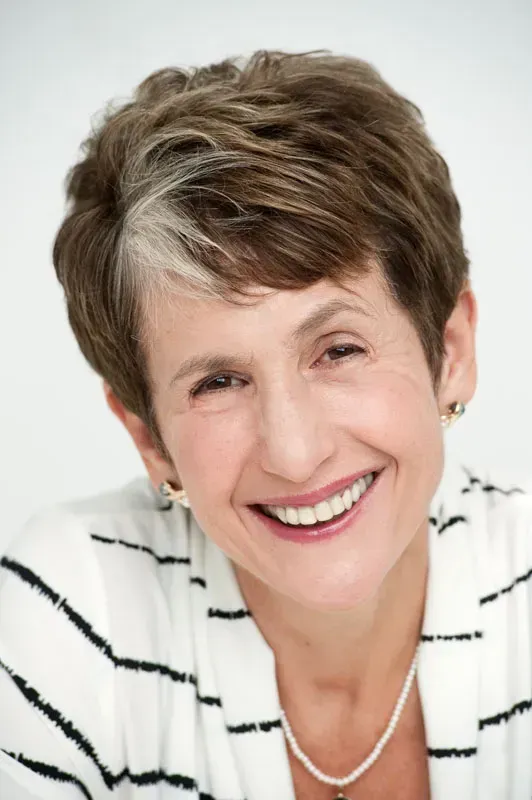In the intricate tapestry of life, sexuality weaves a thread that is both delicate and enduring, a thread that is woven from the fabric of our gender identity, our physical selves, and our emotional needs. Intimacy blossoms and unfolds in their own time, taking root in the soil of our personal and social experiences. Despite the richness of human sexuality, we unwittingly cast aside its importance as a relic of our youth. The mature conversations turn into whispers that suggest that sexuality is a shameful thing for those who have lived a longer life. We willingly accept the narrative of "being too old for sex". But such misconceptions are rooted in ignorance, and they obscure the truth that sexuality is in fact an integral part of the human experience, no matter our age. To suggest otherwise is to deny the splendor of our human emotions and silence our inner desires.

Mainstream Bias
The media, arts, and literature possess great influence in the creation of stereotypes surrounding the elderly. These stereotypes are then internalized by society, doing more harm than good. According to studies by Kite et al. (2005), literature, in particular, depicts the elderly as being physically weak, asexual, unattractive, senile, and uninteresting. This ends up propagating the notion even more.
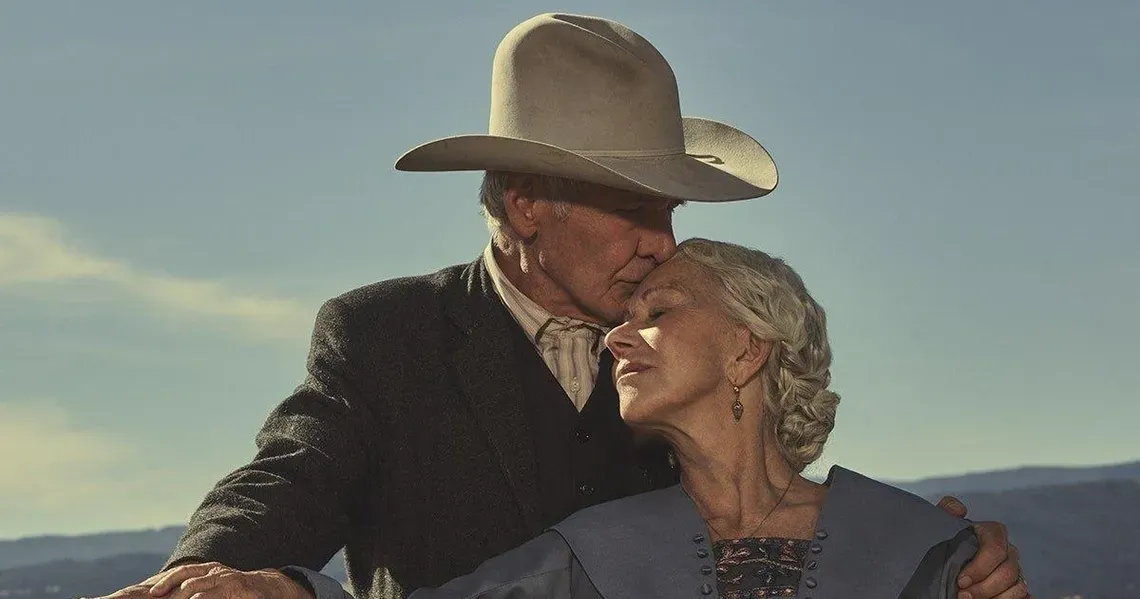
Furthermore, magazines, advertising, television shows, and cinema - have been known to not only under-represent the elderly (especially women) but to also portray them in a negative light. Vares (2009) conducted a study in which a group of older individuals was shown an explicit scene from the film "The Mother," in which an older woman's naked body was depicted. The reaction from the group was filled with embarrassment, indicating how deeply ingrained the notion of young female bodies being the only attractive ones has become. Some of the movies have also tread on later life relationships, albeit, with only small sparks of intimate depictions. Movies such as Hope Springs, Best Exotic Hotel and It's Complicated share a refined but rare version of such intimacy.
The reaction from the group was filled with embarrassment, indicating how deeply ingrained the notion of young female bodies being the only attractive ones has become
However, if used correctly, arts could be a platform for redefining the age. The renowned British photographer, Rankin, launched a revolutionary campaign in association with Relate entitled "Let's Talk the Joy of Later Life Sex" in which he captured images of women and men in their later years in intimate situations. This campaign began a conversation within society about the importance of tackling the stigma surrounding this unspoken subject.
Psychological Internalization
Life alters at the later stages of life. Many do not partake in ambitious hours of work and in fact have a higher sense of balance in life. Many of us have social pursuits, such as hobbies, volunteering, or community activities that help us to stay active. Yet, such endeavors do not guarantee a tranquil state of mind. The transition into old age can engender much anxiety, including issues of self-esteem, as one's physical condition differs from that of their younger self. Around 43% of people above 60 say that their sexual relationship has been affected by age. Because of the shame and guilt of talking about sexuality in later life, researchers have struggled to get under the nuances of "I am too old for sex". Is it the physiological conditions or is it more of what we perceive ourselves?
Researchers have struggled to get under the nuances of "I am too old for sex". Is it the physiological conditions or is it more of what we perceive ourselves?
Many reach old age unprepared to face this stage, misinformed or influenced by prejudices and stereotypes, all internalizing within the psyche and affecting one's perception of oneself and one's partner. This may also deprive the elderly of a healthy sexual life and relationship. There exists a considerable fear of being unable to respond adequately to sexual demands, leading to the avoidance of sexual activity, which could be one-sided or even shared by both partners. The equation changes in terms of trust, communication, and partnership. Many men, for instance, view sexual dysfunction as a "loss of manhood," perplexing them and creating insecurities. Such concerns are not exclusive to men, as women may also feel embarrassed about certain aspects of sex due to changes in their bodies. A large segment suffers from the loss of partners due to death or illness, causing involuntary abstinence. Men have shown a higher risk of mortality in widowhood, leaving women with an even greater likelihood of remaining alone and lacking a sexual partner.

Physical Changes
However, despite studies showing that sexual desire remains present in later life, some may not be as interested in sex as they once were due to physical or hormonal changes, and this should not be judged. For example, a women's health study reported that 88% of women had a low sexual desire after 70. Therefore, when it comes to their self-perception, it could be a source of stress, as their partner may want to engage in sexual discourse. In a steady healthy relationship, partners then broaden the definition of intimacy to seek pleasure.
Physical changes in men include a series of physiological events that modify sexual performance. Hormonal concentrations decrease resulting in different cycles and responses. This diminished level of testosterone results in dysfunctional erections, where achieving an erection becomes more complex and takes more time, as well as a less durable erection. Other medical conditions such as hypogonadism, and neurological or vascular diseases can also be determining factors in the dysfunction, along with hypertension, diabetes mellitus, smoking, and depression. Approximately 15% of men between the age of 60-70 have erectile dysfunctions. Ejaculation itself is also altered, with an absence, delay, or inability to control it. The reason for this is multifactorial and linked to many aspects.
Women also experience hormonal fluctuations and physical changes that result in sexual dysfunctions. Menopause, which comes when estrogen levels decline with age, causes atrophy of the vaginal and vulval membranes, vaginal dryness, and urinary incontinence, along with a decrease in vaginal lubrication and expansion during arousal. Nevertheless, the sensibility of their clitoris and nipples is not affected, so orgasms can be achieved, maybe at a lower rate. Several studies have shown that 56% of married women over 60 are sexually active.
Other pathologies, not necessarily genetically related to the sex system, will also influence sexuality. Comorbid factors such as cognitive impairments, musculoskeletal disorders like arthritis, chronic pain syndromes, and other physical dysfunctions can become concerns.
Oseterics is on a mission to inspire you for active and graceful aging. A regular, practical, and tailored Yoga regimen is proven to help sexual health in a number of research studies. Our program has options for both men's and women's sexual health.
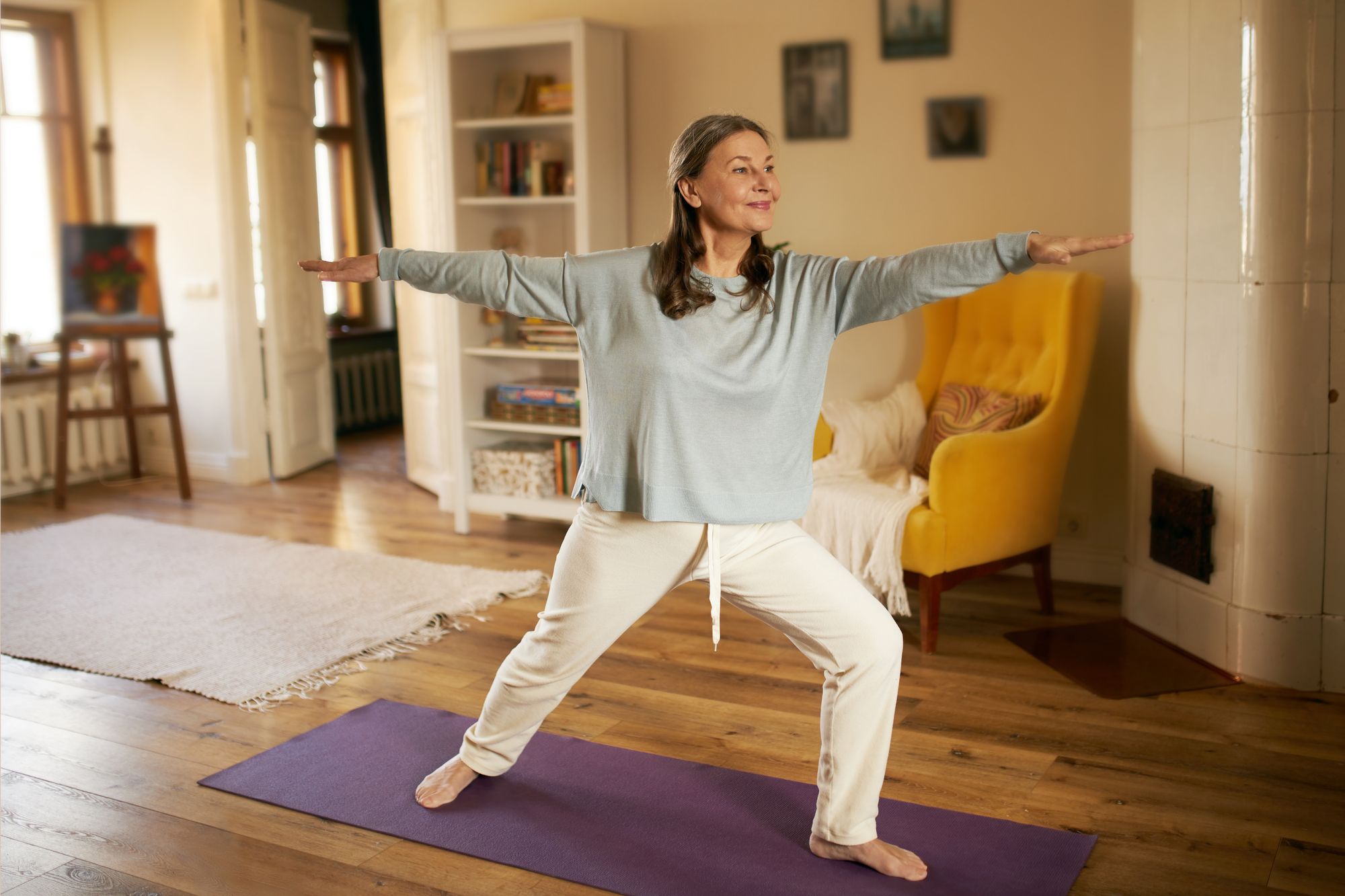

Navigating the Transition
One must embark upon a personal journey of acceptance before delving into the depths of sexuality in later years. The internal issues arising from later life crises must be addressed, and Therapy is a useful tool in treating the psychological problems that may come with aging. It is important to remember that sexual intercourse need not be forsaken in the later stages of life, and fear and embarrassment must be cast aside, along with stereotypes and prejudices. Internalization of ageist attitudes happens among individuals and one needs to self-reflect on their beliefs to understand their intimate relationships deeply. Internal bias is a far greater factor than external stimuli in these situations. Trust in your partner and open communication are key to navigating any concerns that may arise, with marital counselors providing a professional intermediary if necessary.
Unfortunately, societal bias also propagates into medical practices. A study by Haesler et al., 2016 shows how a majority of medical practitioners consider older people's sexuality outside their area of practice. In fact, medical practitioners may not recommend aggressive treatments or set aside certain symptoms labeling "it's just age". One should be cognizant of such involuntary ageism in their interaction. To make matter worse 80% of older adults are embarrassed to approach their physicians to have an informed conversation.
Doctors play a vital role in orienting patients. Obtaining a detailed patient history is essential for maintaining a non-judgmental stance throughout the process. For men, various treatments include vacuum erection devices, Intracavernosal injection therapy, or penile prosthesis implants, with pharmaceuticals such as Viagra, Cialis, or Stendra being effective options. For women, the FDA has approved Addyi and Vyleesi, which treat low sexual desire caused by lower estrogen levels. Treatment strategies for the lack of vaginal lubrication include lubricants, warm baths before intercourse, and topical lidocaine. Estrogen and progesterone replacement therapy have also been found to enhance sexual activity.
Yoga and regular Kegel exercises are simple yet effective workouts that strengthen the pelvic floor and may assist with orgasms, benefiting both men and women. This also helps to maintain overall stamina leading to better sexual relationships.
Sexuality is still an essential part of a human's life as they enter the last years of it, and with the right contention, information, guidance, and medications it is possible to adjust and succeed at the challenges one faces when navigating through it.

Feedback: Leave your comments below

